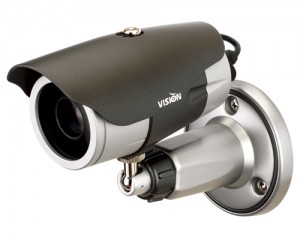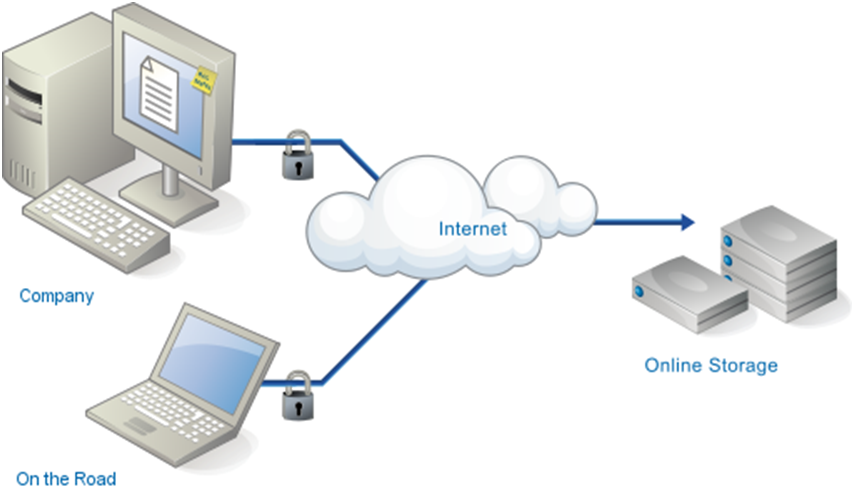Want safe CCTV recording? Which one to choose:
on-site vs. remote storage in CCTV?
 Imagine making a favourite creamy cake. You have all the ingredients on the table. You start mixing the eggs, the flour and the milk. Then you add the baking soda, the sugar and the salt. Just a small pinch. While doing so, you also start heating the oven up so you can save some time.
Imagine making a favourite creamy cake. You have all the ingredients on the table. You start mixing the eggs, the flour and the milk. Then you add the baking soda, the sugar and the salt. Just a small pinch. While doing so, you also start heating the oven up so you can save some time.
Mixing is done, you place the pasta into a baking shape and then into the oven. Meanwhile you mix the cream separately. An hour later or so you can sense the beautiful smell of the cake and in a few minutes’ time it is out of the oven. You leave it alone for a while just to let it cool down a bit. Soon you can put the cream on the cake and …
And you have to decide: where to keep it until the celebration. The fridge is too cold but the kitchen is not cool enough…
You will run into the same dilemma when you install a CCTV system: where to store the data? What is the most appropriate location? On site? Or remotely?
Let’s find it out, shall we?
A critical element to consider
When it comes to a CCTV system, storage plays a vital part. You have to decide which location is the best option to store data. You can choose between on-site storage and remote storage.
The most critical element in your decision making process is security.
Of course, there are pros and cons on both sides. It’s time to examine them.
On-site storage
When an on-site storage system is implemented, it is designed to have the storage device fitted at the same location as the system itself. Of curse, there are advantages of adapting this type of CCTV storage.
First off, it is easy to design and implement and so the costs will be lower.
You can store the data either on a hard disk inside the DVR or on an external set of hard disks. It is wise, however, to keep the hard disk separately from the DVR. If anything happens to the system, your hard disk will be safe and you will be able to get the valuable data from it.
On the other hand, if your hard disk is built into the DVR, it’s quite obvious for someone to take or steal the whole DVR and you will be left without any data. Annoying situation.
Still, you can choose to have a DVR with a built-in hard drive, which is a much easier option. In this case you have to take precautions in securing the DVR device with appropriate casing. You can buy cases for DVR with extra securities such as password control, physical locks and so on.
Precautions you definitely have to take
You are not advised to keep your DVR in a visible place such as cash counters, lobby, reception etc. Interestingly enough, if it is the case, you will have a hard time and may get rejected when you want to claim insurance.
Costs
The cost element plays a huge part in this type of system. If you can’t afford to have a remote storage system, this is the way to go. But, you need to understand that strong security is the whole purpose of a CCTV system.
Remote or off-site storage
In many occasions clients prefer to have a remote storage unit. This will secure the data from any physical abuse and also provide a dedicated storage medium.
Remote storage means data is stored in a remote location. The digital images from your cameras are transferred through an IP network.
Let’s say you have three offices. One in London, one in Birmingham and one in Glasgow. You can have multiple IP cameras at the locations and have them connected via IP to a Central Storage Unit. All the data is stored at the central location.
Advantages
There are some clear advantages of using such systems. For example, in the event of fire, flooding, burglary or vandalism your data will be secured. Also, you can keep the cost down by only adding physical security at one location i.e. where you store the data.
Any disadvantages?
An IP system is quite complex and complicated so yes, there are also some disadvantages.
First of all, you will have a complicated design which has costs. Secondly, because you are relied on IP, any interruption or corruption in your IP system can cause fatal errors. Thirdly, you have to consider security: as data travels through IP, strong encryption techniques or leased lines have to be used.

Also note that you are not supposed to keep data images for more than 30 days. Talk to your local council to get the latest information about data privacy act.
In summary
- Storing data is crucial in CCTV systems
- You can store data on site or remotely (off site)
- There are advantages and disadvantages of both types of systems
- You have to consider: design cost, installation cost, bandwidth and security
Yes, you have to take quite a few factors into consideration. Like, when making a decision about the cake. You can put it in the fridge but then it gets frozen. Or, you can leave it in the kitchen but then the cream might melt. Or, you can put it into the pantry at Granny’s – the right location for a cake like that. And, when the celebration time is here, the cake is just the right in texture and taste… because the storage location has been carefully chosen.
What’s Next?
Learn CCTV Installation at F R Joseph Anton Ltd. Check on our CCTV Installation Courses here.
